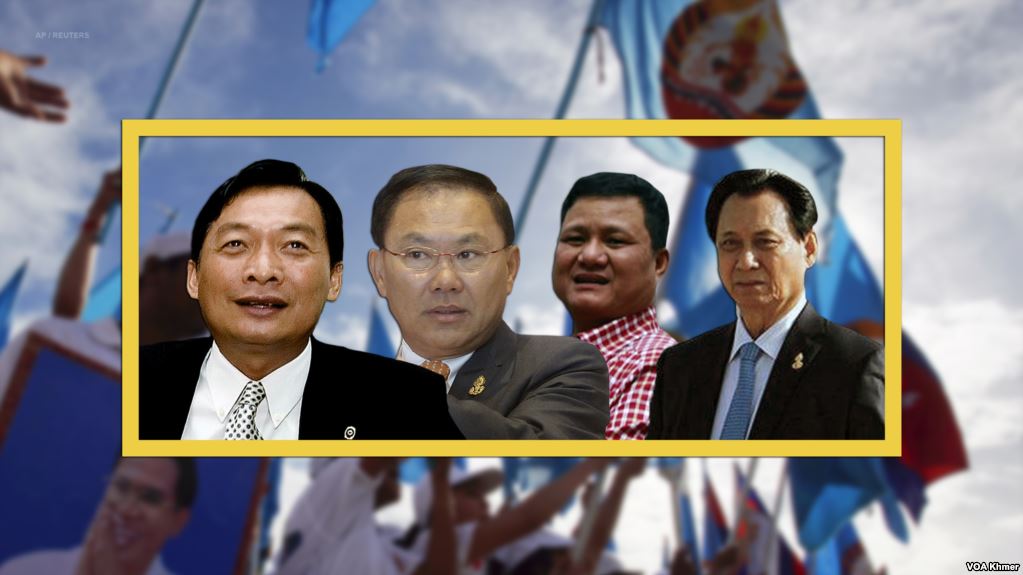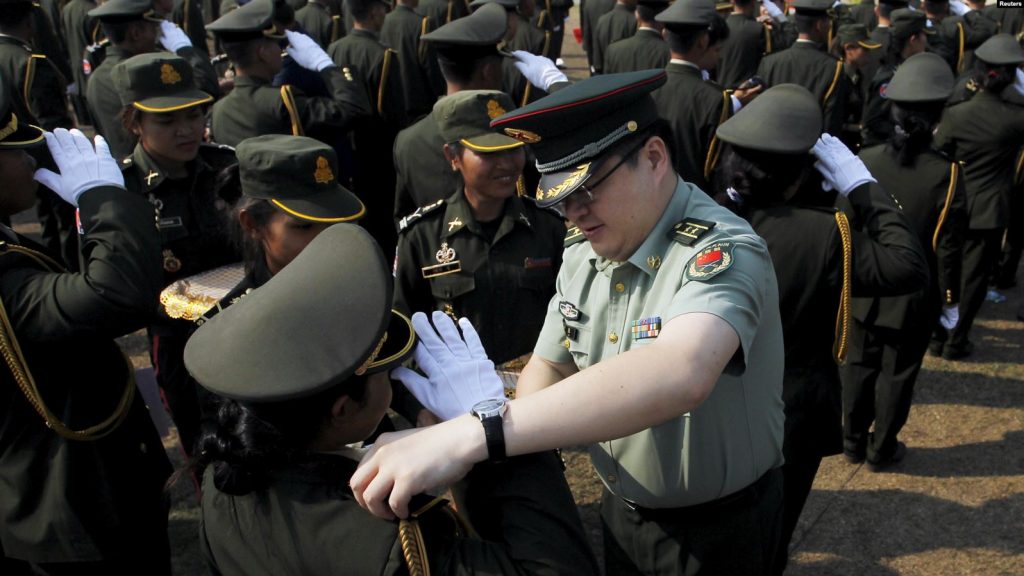OP-ED: CODASTORY, AUTHORITARIAN TECH
“The slow eradication of the fourth estate by Hun Sen has left a cabal of state-owned, state-run and state-influenced media outlets. Fresh News is a symptom of that environment. ដំណើរកំចាត់យ៉ាងយឺតៗនៃអំណាចទី៤ដោយលោកហ៊ុន-សែនបានរុញច្រានស្ងាត់ៗនូវបណ្តុំពត៌មានអោយទៅជាកម្មសិទ្ធិរបស់រដ្ឋ ចាត់ចែងដោយរដ្ឋ និងរដ្ឋមានឥទ្ធិពលពីលើ។ ហ្វ្រេសនូសគឺជារោគសញ្ញាផុសឡើងក្នុងបរិដ្ឋាននោះ”
Fresh News and the Future of the Fourth Estate in Cambodia
In the Cambodian government’s ongoing war on the media, a website called Fresh News has become one of the country’s most useful sources of political misinformation and propaganda
- TEXT BY ANDREW NACHEMSON
- VISUALS BY THOMAS CRISTOFOLETTI
- 22 FEBRUARY, 2019
When leading Cambodian opposition leader Kem Sokha was arrested shortly after midnight in September 2017, most media outlets were taken by surprise. Only Fresh News, a digital news provider with close ties to the government, was on hand to livestream the chaotic scenes which saw Sokha arrested at his home in an operation involving 100 armed police officers.
The arrest marked the culmination of a months-long smear campaign by Fresh News against Sokha, president of the now dissolved Cambodia National Rescue Party (CNRP). Fresh News had linked Sokha to an American-backed conspiracy to overthrow prime minister Hun Sen’s Cambodia People’s Party, which has led the country for more than three decades.
After Sokha was arrested, Fresh News continued its critical coverage with articles like “Why was Kem Sokha arrested? Listen to his confession of treason!” The story contained a link to a 2013 video of Sokha thanking the US for political support and detailing strategies for democratic change. The government claimed Sokha’s comments qualified as a “red-handed” crime, allowing Sokha to be stripped of his parliamentary immunity.

The rise to prominence of Fresh News as a key player in Cambodia’s authoritarian landscape has arrived amidst an unprecedented crackdown on free press and civil society which has reduced the country’s once-robust media to rubble. The fiercely critical Cambodia Daily was shut down in 2017 over a disputed tax bill, publishing its final edition the day of Sokha’s arrest.
Then, last year, Cambodia’s oldest independent newspaper—the Phnom Penh Post—was bought by new owners with close ties to the government, who have enforced strict censorship guidelines. A slew of independent radio stations have also been shuttered, silencing crucial voices and forcing Radio Free Asia to abandon its operations in the country.
The government’s appreciation of the kind of journalism practiced by Fresh News appears to be considerable—Hun Sen has compared Fresh News to news organizations like Reuters.
Throughout the crackdown on traditional media, the digital-first Fresh News has become one of Hun Sen’s most useful instruments with an outsized influence over political misinformation and propaganda. Launched in 2014 with 20 journalists and described as a “bludgeon” by then-independent newspaper the Phnom Penh Post, Fresh News is now the country’s third most visited local site and has led the war against critics of the Cambodian government by spreading unfounded conspiracy theories, leaking private phone calls between opposition politicians, and even helping to give shape to anti-democratic policies.
The media organization, which now employs 200 people across its online, television, radio, Facebook and YouTube platforms, is regularly granted exclusive interviews with high-ranking government officials, including Hun Sen, who almost never give interviews to other outlets. In Khmer, English, and Chinese, Fresh News has become the state’s third arm in an ongoing campaign of media repression.
The government’s appreciation of the kind of journalism practiced by Fresh News appears to be considerable—Hun Sen has compared Fresh News to news organizations like Reuters. “Fresh News now is not only being watched in the country but also abroad, and we also have a quick information system that is no worse than AFP, UPI, AP or Reuters,” he said in a speech in September 2017, days after Sokha’s arrest.
Government spokesman Phay Siphan told the Phnom Penh Post that Fresh News is “a space for the government to share the news”, and said that the platform receives its information directly from government sources.
The success of Fresh News can also be viewed in the light of criticism of investigative journalism in a number of other countries across the world. Just as President Donald Trump has described CNN as “fake news” while giving access to broadcasters like Fox News, and Philippine President Rodrigo Duterte has called news website Rappler Inc. a “fake news outlet”, Hun Sen has asked local and international journalists to tackle “fake news” under the pretext of preserving national security. “Even the countries that claim to respect freedom of speech are concerned about cybercrimes,” he said recently. “Some countries which are regarded as [fathers of democracy] have laws to prevent and punish fake news [perpetrators].”
Exclusives and Leaks
Pro-government since its launch, Fresh News took on a more active role in the summer of 2017, seemingly anticipating or even precipitating the government’s shift towards authoritarianism. Prior to Sokha’s arrest, the government shut down the National Democratic Institute, a US-funded pro-democracy organization that Fresh News claimed was also part of the plot to initiate a “color revolution” to topple the government like those in Eastern Europe and the Arab Spring. NDI was closed and its three foreign staff expelled, a decision that the government justified with materials leaked to Fresh News.
In January, three high-profile Cambodian activists were charged with “breach of trust” in a case widely seen as politically motivated. The men first found out about the charges against them when the court documents were published on Fresh News.
The documents originated from a meeting between NDI and the CNRP during which the groups discussed election campaign strategies. In its defense, NDI claimed they held similar training sessions with multiple parties, including Hun Sen’s Cambodian People’s Party (CPP). Further evidence of Fresh News’s close ties with the government emerged when the platform released photographs of all three foreign NDI staff, taken during their exit from Cambodia at Phnom Penh International Airport. USAID released a statement condemning the “deeply disappointing” decision, while a number of US Senators, including John McCain, also denounced the move.
The document leak was part of a pattern. In contrast to other Cambodian media, Fresh News benefits from exclusive and regular access to government documents, including court summonses and arrest warrants which are made available to the public on the platform. In January, three high-profile Cambodian activists were charged with “breach of trust” in a case widely seen as politically motivated. The men first found out about the charges against them when the court documents were published on Fresh News.
Continue reading

